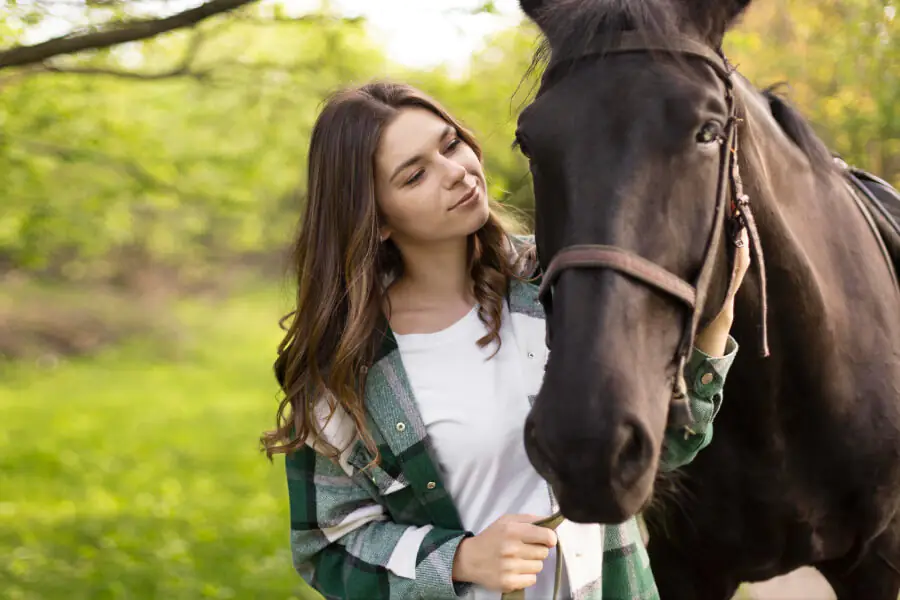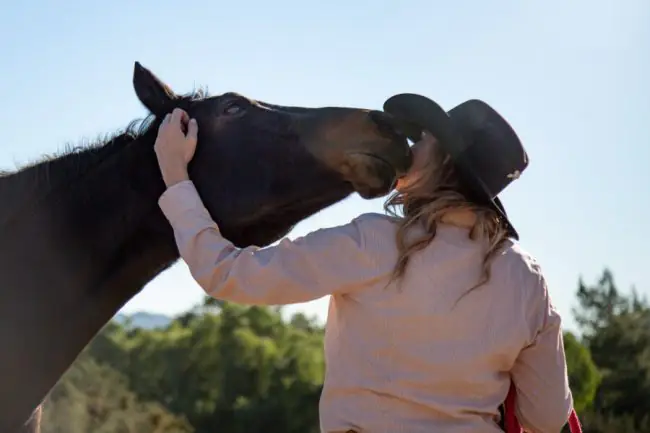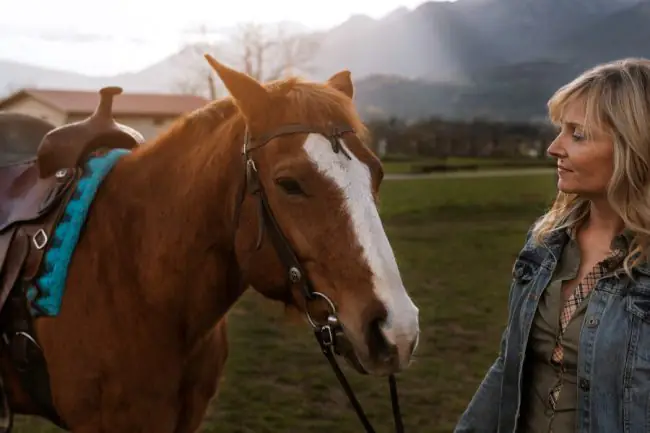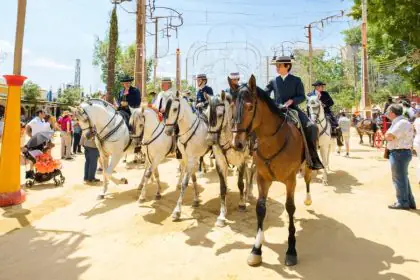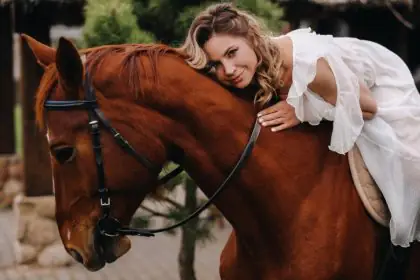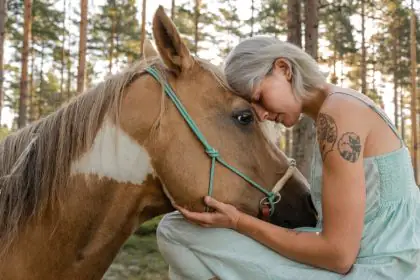Naturopathy for horses is a holistic approach to horses’ health that focuses on natural remedies and non-surgical treatments. This philosophy is based on the principle that horses, like all living beings, have an inherent ability to heal themselves. By using natural therapies, naturopathy for horses supports this self-healing process, helping to maintain and improve overall health.
Understanding the core concepts of naturopathy for horses, highlighting its benefits, and offering practical insights into remedies and holistic solutions specifically tailored for horses will enrich your knowledge.
The Benefits of Horse Naturopathy
Naturopathy for horses offers a lot of benefits that make it a perfect choice for horse owners who value holistic health techniques. Here’s how naturopathy for horses can boost your horse’s well-being:
- Enhanced Vitality: Integrating naturopathy for horses into your horse’s care routine can boost its energy levels and overall vitality. Natural remedies help support the body’s systems and promote optimal health.
- Holistic Health Improvement: Naturopathy for horses focuses on treating the whole horse rather than just addressing symptoms. This comprehensive approach helps balance bodily systems and promotes long-term health and wellness.
- Stress Management: Stress can negatively impact a horse’s health. Naturopathy for horses includes techniques and remedies that help reduce stress, thereby supporting both physical and mental well-being.
The Core Principles of Horse Naturopathy
Naturopathy for horses is grounded in several core principles that guide its practice:
- The Healing Power of Nature: Naturopathy for horses relies on the body’s natural ability to heal itself. Natural therapies and treatments are used to support this process and enhance overall health.
- Treating the Whole Horse: Rather than focusing solely on symptoms, naturopathy for horses addresses the underlying causes of health issues. This holistic technique aims to restore balance and promote comprehensive well-being.
- Prevention is Key: Naturopathy for horses emphasizes preventive care to maintain health and prevent diseases. Proactive measures and lifestyle adjustments play an important role in this method.
Importance of Nutrition in Horse Naturopathy
Nutrition is a fundamental aspect of naturopathy for horses. A well-balanced diet tailored to your horse’s specific needs is essential for maintaining optimal health and supporting the body’s natural healing processes:
- Essential Nutrients: In horses’ naturopathy, providing essential nutrients through a balanced diet is crucial. Vitamins, minerals, and amino acids are vital for various bodily functions and overall health.
- Organic Feeds: Organic and natural feeds align with the principles of naturopathy for horses. These feeds are free from harmful chemicals and additives, providing better nutrition and supporting holistic health.
Common Diseases and Naturopathic Remedies
Naturopathy for horses offers natural remedies for a variety of common horse ailments. Here’s how naturopathic treatments can address specific health concerns:
- Osteoarthritis: Osteoarthritis is a common issue in older horses. Naturopathy for horses includes herbal remedies such as turmeric and ginger, known for their anti-inflammatory properties. These herbs can help reduce pain and improve mobility.
- Gastrointestinal Issues: Digestive problems are prevalent in horses and can be addressed with naturopathic remedies like slippery elm and marshmallow root. These herbs soothe the digestive tract and support healthy digestion.
- Respiratory Health: Respiratory issues can be managed with essential oils such as eucalyptus and peppermint. Naturopathy for horses utilizes these oils to support respiratory health, clear airways, and improve breathing.
Preventive Measures
Preventive care is a core component of naturopathy for horses. Taking proactive steps can help maintain your horse’s health and prevent potential issues:
- Routine Check-ups: Regular evaluations by both veterinary and naturopathic practitioners are essential in horses’ naturopathy. These assessments help detect health issues early and allow for timely intervention.
- Holistic Practices: Incorporating holistic practices such as acupuncture, massage, and other complementary therapies aligns with the principles of naturopathy for horses. These practices support overall health and well-being.
Alternative Approaches in Horse Naturopathy
Naturopathy for horses includes various alternative approaches that offer unique benefits:
- Homeopathy: Homeopathy involves using diluted substances to stimulate the body’s healing processes. In horses’ naturopathy, homeopathy can address a range of conditions and promote overall health.
- Phytotherapy: Phytotherapy, or herbal medicine, is a significant aspect of naturopathy for horses. This approach uses plant-based remedies to treat diseases and enhance health.
- Mycotherapy: Mycotherapy, the use of medicinal mushrooms, is gaining recognition in horses’ naturopathy. It supports immune function and overall health, offering additional benefits to horse care.
The Role of Environment in Horse Health
Creating a healthy environment is crucial in naturopathy for horses. The living conditions of your horse can have a significant impact on its health:
- Clean Stabling: Maintaining a clean, well-ventilated stable is essential in horses’ naturopathy. Proper ventilation helps prevent respiratory issues and promotes a healthy living environment.
- Safe Pastures: Providing access to clean and safe pastures supports both physical and mental health. This aligns with the holistic principles of horses’ naturopathy and contributes to overall well-being.
Naturopathic Recipes for Horse Wellness
Incorporating naturopathic recipes into your horse’s diet can enhance their health and well-being. Some recommended recipes include:
- Herbal Teas: Herbal teas made from ingredients like chamomile and peppermint can be beneficial for calming and supporting digestive health. These teas align with horses’ naturopathy and offer natural relief.
- Natural Supplements: Supplements such as flaxseed oil and joint support formulas can be added to your horse’s diet to provide specific health benefits and enhance overall well-being.
- Homemade Remedies: Simple homemade remedies using natural ingredients like Apple Cider Vinegar, chamomile tea, Garlic, Honey, Onion, and Oil can address minor diseases and support general wellness. Recipes for these remedies can be customized to fit the specific needs of your horse.
Integrating Naturopathy into Your Horse’s Routine
To effectively integrate naturopathy for horses into your horse’s routine, consider these practical tips:
- Consult with a Naturopathic Veterinarian: Work with a veterinarian who specializes in horses’ naturopathy. They can provide personalized advice and treatment plans based on your horse’s specific needs.
- Monitor Your Horse’s Health: Keep track of any changes in your horse’s health and well-being. This information can help you and your veterinarian make informed decisions about naturopathic treatments.
- Educate Yourself: Continuously educate yourself about horses’ naturopathy by reading relevant books, articles, and research. Staying informed will help you make the best choices for your horse’s health.
Conclusion
Naturopathy for horses offers a range of remedies and holistic solutions designed to improve your horse’s health and well-being. By embracing the principles of naturopathy and integrating natural treatments into your horse’s care routine, you can support their natural healing processes and enhance their quality of life. Explore the benefits of naturopathy for horses and discover how these holistic solutions can positively impact your horse companion. Prioritize your horse’s health and well-being with naturopathic approaches that align with natural healing principles.
FAQs
What is the concept of naturopathy?
Naturopathy is a holistic approach that emphasizes natural remedies and the body’s ability to heal itself. In naturopathy for horses, this means using natural treatments to support horse health.
How does naturopathy treatment work?
Naturopathy treatment works by addressing underlying health issues with natural methods. This approach supports the body’s inherent healing capabilities and promotes overall health.
What are the five elements of naturopathy?
The five elements of naturopathy typically include nutrition, herbal medicine, homeopathy, physical therapy, and lifestyle counseling. These elements are integral to naturopathy for horses.
What are naturopathic techniques?
Naturopathic techniques include various methods such as herbal remedies, dietary adjustments, and alternative therapies like acupuncture. These techniques are used in naturopathy for horses to support health and well-being.
What are the six principles of naturopathic medicine?
The six principles of naturopathic medicine often include the healing power of nature, treating the whole person, identifying and treating the causes, first do no harm, doctor as teacher, and prevention. These principles guide naturopathy for horses.

